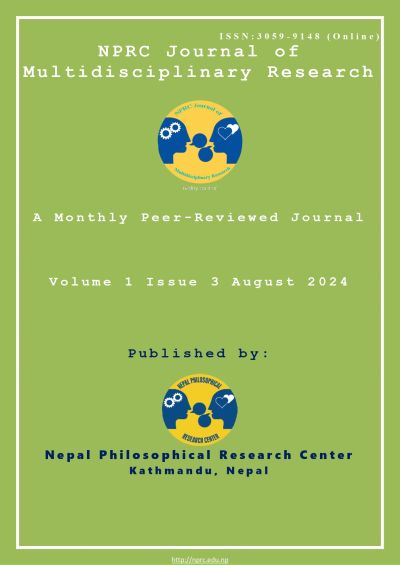The Sociological Perspective on Maghi Festival as the New Year of the Tharu Community
DOI:
https://doi.org/10.3126/nprcjmr.v1i3.70087Keywords:
Maghi, Custom, festival, Tharu, process, Guruwa, Cultural, significant, changeAbstract
The Tharu are an indigenous community living in the Terai and inner Terai regions of Nepal, which is known for its diverse caste, ethnicity, language, social structures, culture, and religions. Maghi is the main festival of the Tharu community. The present research paper clarifies the relevance of Maghi festivals. In this paper customs, procedures and celebration of Maghi are examined. The present study uses a combination of exploratory and descriptive research designs and is based on interviews with elders, ritual performers, and educated members of the Tharu community. Tharu people celebrate Maghi as the New Year, marked by the government has declared holidays. The festival, lasting seven days, involves cleaning, refurbishing houses, and cultural activities. Rituals include holy baths, prayers for children, and offering to deities. It fosters community bonds, while its culinary traditions highlight cultural significance. Economic, social, and cultural factors have contributed to the dynamic nature of Maghi practices, A sociological study by concentrating on the Maghi festival as Tharu new year of study area Birendranagar Municipality-9, Patalganga village, Surkhet. It offers particular insights into Maghi festival's importance, practices and gradually changing to reflect qualities that are inconsistent with modern morals.
Downloads
Downloads
Published
How to Cite
Issue
Section
License
Copyright (c) 2024 The Author(s)

This work is licensed under a Creative Commons Attribution-NonCommercial 4.0 International License.
This license enables reusers to distribute, remix, adapt, and build upon the material in any medium or format for noncommercial purposes only, and only so long as attribution is given to the creator.





